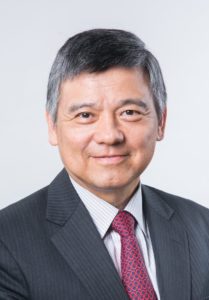A new year brings a new black swan event. The COVID-19 virus outbreak has driven high volatility in financial markets worldwide, with the CBOE VIX index spiking to over 49% in the last trading day of February, 2020.

Some of the biggest volatility were seen in technology stocks. Not only would a global pandemic hit demands for their products and services, these sectors are also highly exposed to any disruption in their complex supply chains in Asia. Hints of recent sell-off have been visible in Asian markets for weeks. While most media headlines focused on demand-side considerations, supply chain risks will remain at the forefront of traders’ minds. Now is a good time to re-visit some of the issues they face when hedging supply-chains in Asia.
Unlike North America and Europe, markets in Asia are highly fragmented and traders often struggle to effectively hedge their positions given the limited level of interoperability between markets. For example, critical supply chains of semiconductors are listed separately in Taipei, Tokyo and Seoul, markets that each has different trading and regulatory environments.
Nevertheless, markets across Asia are converging – a trend that, perhaps, may not be generating too many headlines but is providing welcome flexibility and new options to investors. For example, in March 2020, Taiwan will introduce continuous trading in its cash market, despite continuous trading long being a feature of its futures market, the Taiwan Futures Exchange (TAIFEX). TAIFEX is also set to introduce a real-time market data feed, which distributes bids, offers and traded prices on occurrence, allowing market participants to discover real-time pricing and strengthen their ability to deploy global trading strategies that involve trading between Taiwan’s futures and cash markets.
Given the potential scale of the virus outbreak, the uneven way manufacturing hubs may be shut down and re-opened, which could generate ample opportunities for derivatives investors. The availability of real-time trading data is right in time, and the access to timely market information enables these investors to calibrate their trading model and strategies. Meanwhile, quicker and more accurate prices for the increasing number of closely related or identical products being listed on different regional markets, as well as on venues located in North America and Europe, are fostering increased arbitrage trading and high frequency trading (HFT) by algorithmic traders. A prime example is Nikkei and TOPIX futures, which trade on their home market in Japan, as well as in various forms in Taipei (TAIFEX), Singapore (SGX), Chicago (CME), and São Paulo (B3), provides ample opportunities for cross-market arbitrage.
Arbitrage is also seen by the increasing availability of ETFs on different markets that track similar underlying assets and themes, as well as new options and warrants tracking individual companies, such as Taiwan Semiconductor Manufacturing Company (TSMC), which are listed in various forms in the U.S. and Taiwan. More and more HFT activity is also perceived in the trading of derivatives tracking commodities such as oil and metals, as Asia’s rising economies draw attention away from traditional trading venues in Europe.
The greater availability of continuous trading, richer data feeds, arbitrage-able products, faster trading systems, and competitive and easy market access on the ground has convinced major global hedge funds who specialise in algorithmic trading strategies to rapidly expand their footprints in Asia, where many are reporting higher profit margins than in their home countries.
All of this is good news for trading venues across the region. Not only will they see higher trading volumes, especially during times of high volatility, the value of other services – particularly data – will increase as well. This will enable Asian exchanges, both big and small, to invest more in their capabilities to address the needs of sophisticated global investors.
Bing-Jing Huang is the President of Taiwan Futures Exchange



